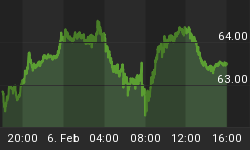The S&P 500 index is at key resistance levels. This week G.D.P. should provide a better understanding of the real state of the economy. After Spain, will Portugal be next in Europe?
Private consumption is slowing down in the U.S.
The weak labour market is putting pressure on households' confidence and contracting wealth. In June, retail sales fell 0.5% month-on-month. It was the third decline in three months. For the first time since 2010, sales fell 0.8% on a three-month annualized basis. The decline in oil prices played a role in the latest data. Retail sales stayed only mildly positive without the energy component. Spending on durable goods was impacted the most and receded 2.6% in June. Excluding cars, sales of durable goods slumped 10.3%. Retail sales account only minimally for consumer spending and G.D.P. data will be watched closely this week. This should confirm if the U.S. is following the world economic slowdown or it is simply pausing, after few months of good performance. In the past 100 years, economic contractions have lasted from 13 to 17 years before resuming the long term up-trend. Current decline started in 2000.
In reality, not all the data is negative. Manufacturing surveys for July by the New York and the Philadelphia Federal Reserves are indicating some stabilization. Nonetheless, some of the numbers are not lining up. According to the NEM index, which averages New York and Philadelphia manufacturing surveys, new orders fell below the benchmark of 50 for the second straight month. The employment sector slumped to 53.5 from April's high of 59.3. Manufacturing output growth fell from 11.1% in February (annualized) to 1.7% in June. The coming months will be critical. A contraction in hiring could be very negative for the already weak job market. The S&P 500 index is again bouncing just below the important resistance line at 1380. The next target could eventually be 1400/1450. A breakout failure will take the price to 1330/1300.
Will Portugal be next?
In a recent interview for "Le Monde", the E.C.B. president Mario Draghi said he expects a gradual improvement of the euro zone crisis by year-end, or by the beginning of next year. Mr. Draghi also confirmed the E.C.B.'s primary task is to fight inflation, but has no issues in expanding its mandate, if necessary. The job to be accomplished is long and tortuous. According to the Bank of Lending survey, demand for credit is light. Many countries are paying expensive interest rates on their debt and investments are subdued. New fiscal and monetary policies are required, but politicians are once more postponing any decision. The E.C.B. could further cut rates. However, non-standard measures are necessary. The euro zone crisis is worsening by the minute. Spain will receive 100 billion euros from the E.U. As a result, the country will be able to pay its bills and avoid bankruptcy. What will happen next?
After Greece, Portugal will probably request that international monetary aid be extended. Despite the efforts of the Portuguese government, the public deficit will eventually exceed 5% of the G.D.P. this year. External demand is not enough to compensate a decline of the internal request. The 10-year rates are near 10%, while the unemployment rate is almost 16%. The euro zone is shaking. For "Der Spiegel", the International Monetary Fund (I.M.F.) will not provide additional rescue aid to Greece in September. The euro stays under pressure. Nonetheless, the U.S. dollar, which has played a safe haven role so far, remains extremely overbought. According to the latest Commitment of Traders report (COT), long positions held by futures funds are at record highs, while short positions are at record lows. The dollar index is pressing against the upper channel line of the past twelve months. A breakout failure could send the U.S. dollar into decline until year-end.















